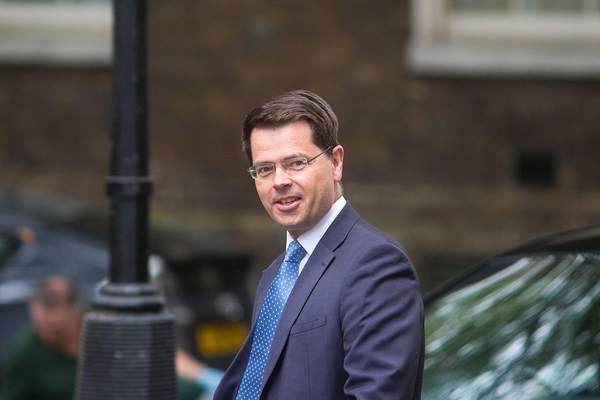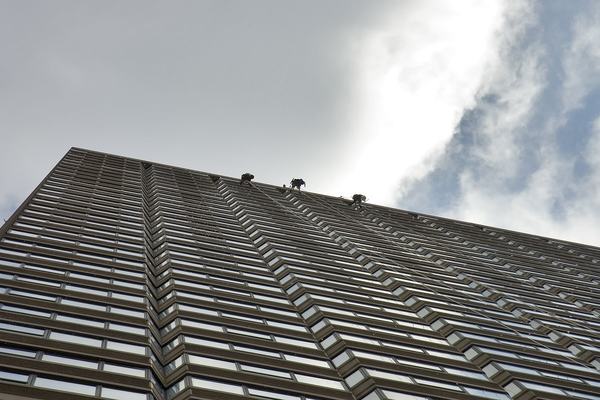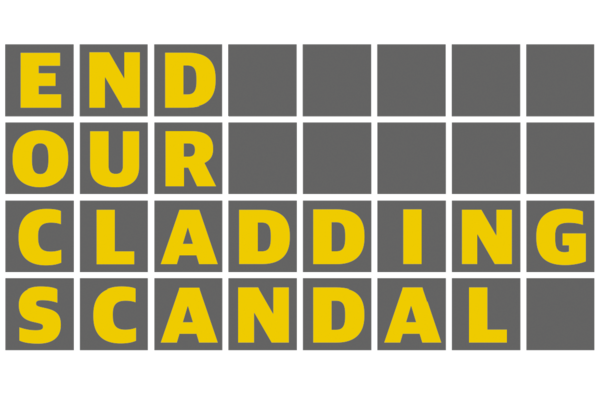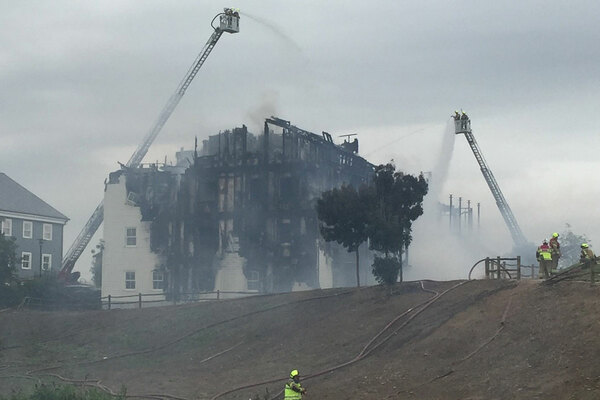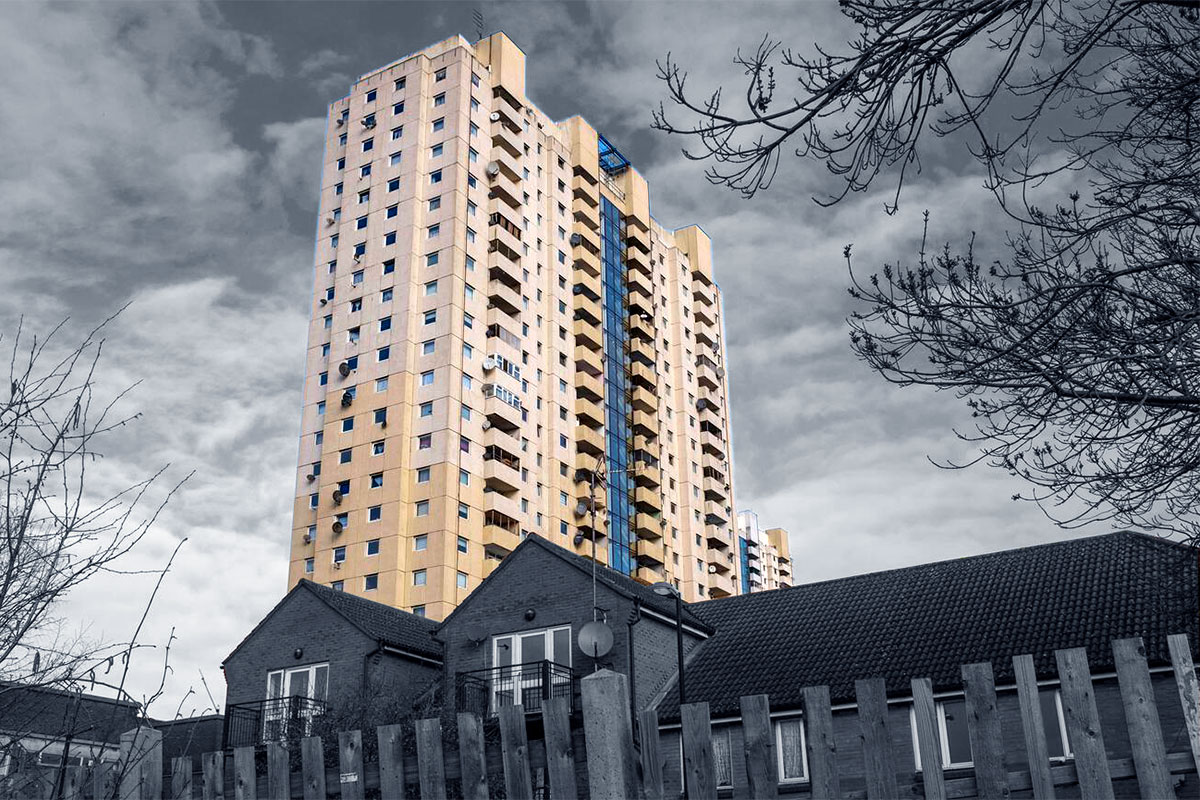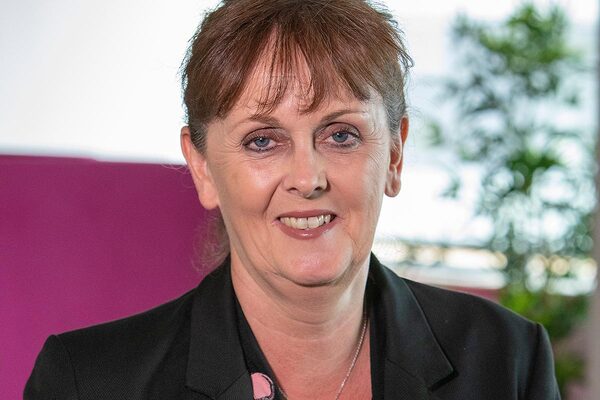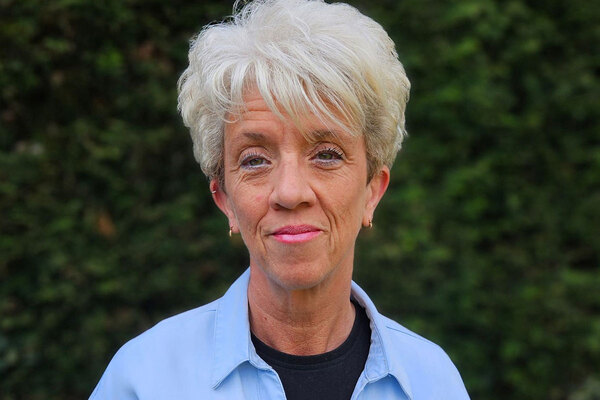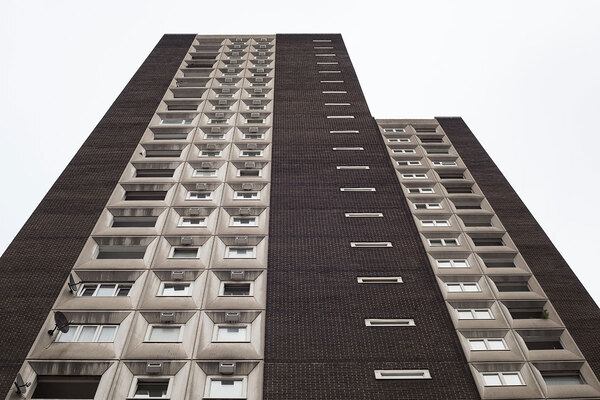You are viewing 1 of your 1 free articles
New cladding fund will come out of existing MHCLG budgets, Brokenshire confirms
James Brokenshire has confirmed a £200m fund to pay for the removal of Grenfell-style cladding will come from his departments existing budgets in a statement to parliament.
Quizzed by MPs on the announcement, the housing secretary confirmed that he had not received new money from the Treasury to pay for it, meaning it will be cut from other budgets.
When £400m was released for the aluminium composite material (ACM) removal from social housing sector blocks last year, it was taken from the Affordable Housing Programme, which was then topped up in a later round to compensate.
Mr Brokenshire said the spending represented 3% of the annual programme of spending for the Ministry of Housing, Communities and Local Government if it is fully committed.
It follows an Inside Housing campaign alongside residents of affected buildings calling for a fund to pay for the removal of dangerous cladding on all forms of affected blocks.
He was also at pains to stress that the government was not accepting any responsibility for the cladding failures and that building owners would be required to pursue claims to recover the costs.
“This does not absolve industry from taking responsibility for their failures, the failures that led to the ACM wrongly being put on these buildings,” he said.
“As a condition of the funding, we will stipulate that building owners pursue warranty and insurance claims against those responsible for putting unsafe ACM cladding on these buildings.”
Responding, shadow housing secretary John Healey asked “why on earth” ministers have taken two years to announce action over private residential blocks.
He said: “The sorry truth is that the government has been frozen like a rabbit in the headlights in the face of these post-Grenfell problems, too weak and too slow to act at every stage and on every front.”
Mr Healey, and several other MPs, also grilled Mr Brokenshire on plans for remediation at blocks with dangerous cladding which is not ACM – which are currently locked out from the fund.
In his response, Mr Brokenshire implied this would depend on the outcome of government tests which are due to commence shortly.
He said: “We have a testing programme that is underway to assess other non-ACM systems… Clearly we will act on the information and evidence that’s provided as a consequence of that further testing programme.
“I would urge [Mr Healey] to be careful in what he says and not pre-judge the outcome of the results of the tests which we will see in the weeks ahead.”
Asked if leaseholders would be recompensed for the money spent on waking watches and other interim measures, another ask of Inside Housing’s campaign, Mr Brokenshire made no commitments.
He said the fund would see the cladding removed quickly which would reduce the cost of a waking watch.
In a lighter exchange, Jim Fitzpatrick, the Labour MP for Poplar and Limehouse, and a backer of Inside Housing’s campaign promised the minister he would appear on the front page of the next edition of the magazine.
He said: “I think it probably guarantees him the splash front page in the next edition of Inside Housing so that can’t do him any harm.”
Mr Brokenshire replied: “Whether I look forward to coverage in Inside Housing, I actually recognise the work Inside Housing has done in assisting and shining a light on a number of these factors.”
End Our Cladding Scandal: open letter
Dear communities secretary,
“There is nothing more important than ensuring people are safe in their own homes.”
These are your words. You have repeated them many times over the last year – in speeches, statements to Parliament and press releases. They are words we agree with and we believe that you do too.
The problem is that right now they are in danger of ringing hollow. Since the horrifying fire at Grenfell Tower, 434 tower blocks across the country have been found to have dangerous aluminium composite material cladding systems. Last year your government took the decisive action of promising to pay for the removal of these systems from social housing towers.
Removal work is happening more quickly on social housing towers - although there is still much to be done. We urge you to continue to oversee this work to ensure it is done as swiftly and safely as possible. But with no money allocated for the private sector, the residents of private blocks are left stranded.
Of the 176 private residential towers found to have dangerous ACM cladding, remediation work has completed on just 10. Flats in these towers are close to worthless, making it impossible to sell and leaving residents trapped. This leaves tens of thousands of leaseholders and private tenants facing the mental trauma of sleeping each night with the fear of a devastating fire. And this number will only grow as blocks with other forms of dangerous cladding are discovered.
This fear is compounded by the fact that the bills for the work to make buildings safe is being passed to leaseholders. These bills are crippling – demands are being made for sums of up to £80,000 per flat. The cost of interim safety measures, such as fire wardens, are also being met by the residents of these towers. The pressure of this situation is leading to nothing short of a mental health crisis among affected leaseholders.
The government has attempted to pressure developers and building owners to pay. There has been some success in this regard, but that alone will not solve this crisis. Many companies have declared an intention not to pay. Many others who have made commitments are acting too slowly. It is believed around 10,000 people live in blocks where there is no plan in place for the removal of the cladding.
Local authority enforcement powers provide no protection against leaseholders being billed and, in some instances, simply crystallises the threat of demands for payment. The law is also not on residents’ side. Every tribunal decision so far has found against the leaseholders. Residents of these blocks cannot wait years for new legislation to solve this problem. Action is needed now.
We need the government to set up a fund to pay for all unsafe residential homes to be made safe, both inside and out and including non-ACM systems. This must not be provided as loans, which would simply saddle leaseholders with debt. We need this fund to be tied to a commitment to complete the work within two years. We need those who have spent their life savings on interim measures to be recompensed. And we need all of this to be announced by June 14 this year – the second anniversary of Grenfell.
This is not about apportioning blame or liability. Blame matters far less than doing what is necessary to make these blocks safe. And the cost of not acting is far higher than making these homes safe. As you have so frequently said – nothing is more important.
Yours sincerely,
Martin Hilditch, editor, Inside Housing
Fran Reddington, Green Quarter, Manchester, on behalf of Manchester Cladiators
Ritu Saha, Northpoint Bromley and William Martin, Metis Building, Sheffield, on behalf of the UK Cladding Action Group
Natasha Elcock, chair, Grenfell United
Kate Henderson, chief executive, National Housing Federation
Terrie Alafat, chief executive, Chartered Institute of Housing
Andy Burnham, Mayor of Greater Manchester
Lord Gary Porter, chair of the Local Government Association
Polly Neate, chief executive, Shelter
Jane Duncan, chair of the expert advisory group on fire safety, RIBA
Andy Dark, assistant general secretary of the Fire Brigades Union
Christina McAnea, assistant general secretary, UNISON
Sir Peter Bottomley, Conservative MP and chair of the All-Party Parliamentary Group on Leasehold and Commonhold Reform
Jim Fitzpatrick, Labour MP, and member of All-Party Parliamentary Group on Leasehold and Commonhold Reform
Mark Amesbury, shadow employment minister and Labour MP for Weaver Vale
Emma Dent Coad, Labour MP for North Kensington
Lucy Powell, Labour MP for Manchester Central
Rushanara Ali, Labour MP for Bethnal Green and Bow
George Howarth, Labour MP for Knowsley
Graham Stringer, Labour MP for Blackley and Broughton
Sandy Martin, Labour MP for Ipswich
Mike Amesbury, Labour MP for Weaver Vale and shadow employment minister
John Biggs, mayor of Tower Hamlets
Paul Dennett, mayor of Salford
Suzanne Richards, councillor and executive member for housing and regeneration on behalf of all Manchester's Labour Councillors
Sir Richard Leese, Labour councillor and leader Manchester City Council
John Leech, Manchester Liberal Democrat leader on behalf of all Manchester’s Liberal Democrat councillors
Darren Rodwell, executive member for housing at London Councils and leader of Barking and Dagenham Council
George Clarke, TV Architect
David Walker, bishop of Manchester
Graham Tomlin, bishop of Kensington
John Roberts, founder of AO.com
Josh Beaumont, professional rugby player, Sale Sharks and resident of affected building
Bill Beaumont, former England rugby captain
Jeremy Dyson, co-founder of the League of Gentlemen
Andy Moss, actor who has appeared on Channel 4’s Hollyoaks and resident
Cassie Bradley, actress and star of Coronation Street
Ross Mullan, actor who has appeared in Game of Thrones
Get Cape Wear Cape Fly, musician
Nour-eddine Aboudihaj, spokesperson for Justice4Grenfell
Mike Leonard, chief executive, Building Alliance
Kate Kendrick, founder, National Leasehold Campaign
Martin Boyd, chair, Leasehold Knowledge Partnership
Paula Higgins, chief executive, HomeOwners Alliance
Mark Henderson, chief executive, Home Group
Ben Clay, founding member of the Tenants Union
Hilda Palmer, acting chair of the Hazards Campaign
Susan Bright, professor of law, University of Oxford
End Our Cladding Scandal: campaign aims
- Government provides a fund to cover the cost of cladding removal and remedial works on private blocks
- A firm timescale is set out of no more than two years for the work to be carried out
- Residents are reimbursed for the interim fire safety costs incurred, and funding is to be provided for necessary internal fire safety measures identified by a competent fire risk assessor
